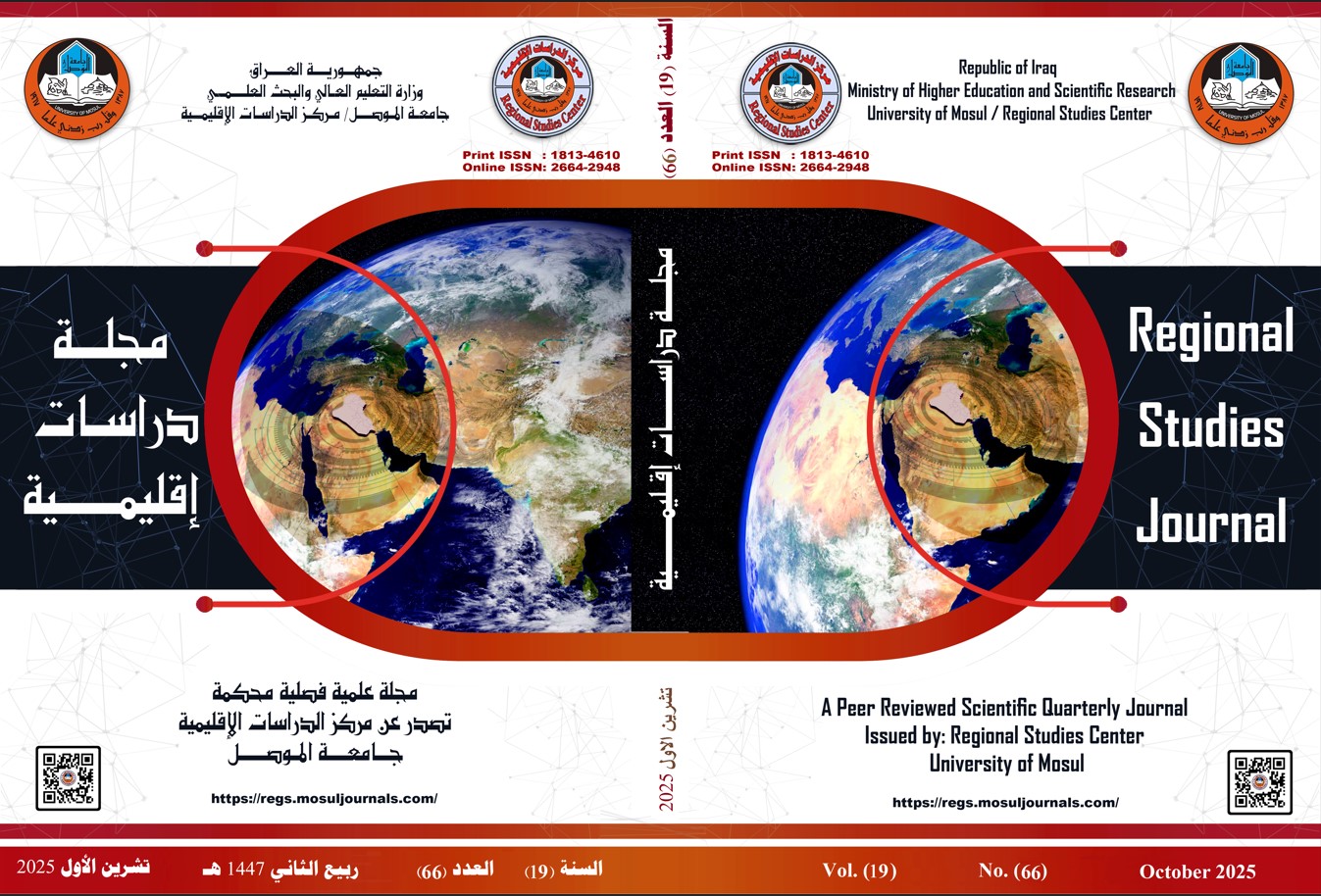Abstract
This research seeks to examine the circumstances of Palestinian refugees in Kuwait from 1948 to 1993 by analyzing the political, economic, and social dimensions that shaped their experience during this pivotal phase of the Palestinian diaspora. The study begins with an exploration of the early waves of Palestinian migration to Kuwait following the 1948 Nakba and the reception extended to them by the Kuwaiti state, with particular emphasis on the legal and administrative frameworks regulating their presence. It then investigates the professional sectors in which Palestinians were predominantly employed—most notably education, healthcare, and engineering—underscoring their significant and positive contributions to Kuwait’s national development. The research further addresses Palestinian political activity within Kuwait, especially during the First Intifada of 1987, a period that witnessed emerging tensions between the Palestinian community and the Kuwaiti state, which in turn influenced both political dynamics and social relations. Additionally, the study analyzes the economic and social challenges encountered by Palestinians, including labor market barriers, constraints on social integration, and the precursory indicators leading up to Iraq’s 1990 invasion of Kuwait—events that profoundly affected the Palestinian community and exacerbated their precarious situation. The findings suggest that the Palestinian experience in Kuwait represented a complex interplay of achievements and adversities, characterized by both support and opportunity provided by the state, as well as legal, administrative, and political restrictions imposed by shifting regional circumstances. The study ultimately highlights the necessity of situating this experience within the broader context of the Palestinian diaspora and emphasizes the lessons it offers for the formulation of more effective refugee policies in the Gulf region.
Keywords
Palestinian refugees; Palestinians in Kuwait; Palestinian diaspora; First Intifada; Kuwait-Palestine relations.
Abstract
يهدف هذا البحث إلى دراسة أوضاع اللاجئين الفلسطينيين في الكويت خلال الفترة من 1948 حتى 1993، من خلال تحليل الأبعاد السياسية، الاقتصادية، والاجتماعية التي شكلت تجربتهم في هذه المرحلة المهمة من الشتات الفلسطيني. يبدأ البحث بتناول موجات الهجرة الفلسطينية الأولى إلى الكويت بعد نكبة 1948، واستقبال الدولة الكويتية لهم، مع التركيز على الظروف القانونية والإدارية التي حكمت وجودهم في البلاد. كما يتناول البحث القطاعات المهنية التي عمل بها الفلسطينيون، وأدوارهم في مجالات التعليم والصحة والهندسة، مما يعكس تأثيرهم الإيجابي على التنمية الكويتية. يتناول البحث كذلك النشاط السياسي الفلسطيني داخل الكويت، وخاصة خلال الانتفاضة الفلسطينية الأولى عام 1987، حيث بدأ يظهر تباين في المواقف بين الجالية الفلسطينية والدولة، مما انعكس على العلاقات السياسية والاجتماعية. كما يناقش البحث التحديات الاقتصادية والاجتماعية التي واجهها الفلسطينيون، مثل صعوبات سوق العمل والقيود على الاندماج الاجتماعي، إلى جانب المؤشرات التي سبقت الغزو العراقي للكويت عام 1990 والتي أثرت على الجالية الفلسطينية وساهمت في تعقيد وضعهم. تخلص الدراسة إلى أن تجربة الفلسطينيين في الكويت كانت مزيجاً من النجاحات والتحديات، تمثلت في الدعم والاحتضان من الدولة، إلى جانب القيود القانونية والإدارية والسياسية التي فرضتها الظروف الإقليمية. كما تؤكد الدراسة على أهمية فهم هذه التجربة ضمن سياق الشتات الفلسطيني، والدروس التي يمكن استخلاصها لتطوير سياسات أفضل تجاه اللاجئين في دول الخليج.
Keywords
الفلسطينيون في الكويت؛ اللاجئون الفلسطينيون؛ الشتات الفلسطيني؛ الانتفاضة الفلسطينية الأولى؛ العلاقات الكويتية-الفلسطينية.
